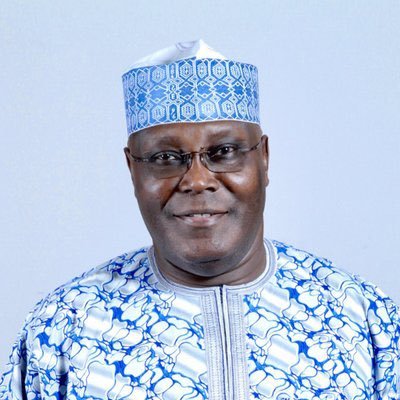Former Vice President Atiku Abubakar has issued a clarion call for an immediate and thorough investigation into what he described as “contrived” voter registration figures reported from Osun State, warning that such discrepancies could undermine the credibility of Nigeria’s electoral process. Speaking through his Media Adviser, Mazi Paul Ibe, in an interview with Vanguard in Abuja on Thursday, August 28, 2025, Atiku expressed deep concern over the unusually high number of new voter registrations recorded in Osun State during the recent Continuous Voter Registration (CVR) exercise conducted by the Independent National Electoral Commission (INEC). The former vice president’s remarks have reignited debates about the integrity of Nigeria’s electoral system, particularly as the nation prepares for the 2027 general elections. This article delves into the details of Atiku’s allegations, the broader context of Nigeria’s electoral challenges, and the implications of these concerns for the country’s democratic future.
The Allegation: A Question of Credibility
Atiku Abubakar’s concerns center on what he perceives as a significant anomaly in the voter registration figures reported by INEC for Osun State. According to data released by the electoral body, Osun recorded approximately 393,000 new voter registrations in just over a week during the CVR exercise. This figure stands in stark contrast to the registration numbers reported from other states, with at least five states collectively recording fewer than 5,000 new registrations in the same period. The sharp disparity has raised suspicions of potential manipulation or error, prompting Atiku to demand an immediate investigation to ensure the credibility of the electoral process.
Mazi Paul Ibe, speaking on behalf of the former vice president, emphasized the gravity of the situation. “Yes, His Excellency is, of course, concerned about it,” Ibe told Vanguard. He underscored Atiku’s belief that any attempt to inflate voter registration figures, whether in Osun or elsewhere, constitutes a direct threat to the integrity of Nigeria’s democracy. “Any attempt, any plan, or any agenda to inflate figures in particular states, or across the country, should be investigated. There should be an investigation so that no one is left in doubt, and so that the figures published by INEC are seen as genuine, not contrived,” Ibe stated, reflecting Atiku’s insistence on transparency and accountability.
The former vice president’s call for action is driven by a broader concern about the erosion of public confidence in Nigeria’s electoral system. With the 2027 general elections looming, Atiku warned that unresolved issues, such as questionable voter registration figures, could undermine the legitimacy of the electoral process and deepen public distrust in democratic institutions. “That is important. It needs to be investigated without delay. There is an urgency to this because what we are trying to do is to remove every obstacle that could undermine the integrity of the democratic process ahead of the 2027 general elections,” Ibe added, conveying Atiku’s sense of urgency.
Echoes of Concern: The African Democratic Congress Weighs In
Atiku’s allegations are not isolated but echo similar concerns raised by other stakeholders in Nigeria’s political landscape. The African Democratic Congress (ADC), a prominent opposition party, has also questioned the credibility of the Osun voter registration figures, describing them as “statistically implausible.” The ADC’s critique lends weight to Atiku’s call for an investigation, suggesting that the issue has sparked widespread unease among political actors and observers.
The ADC’s statement highlights the mathematical improbability of Osun State registering nearly 400,000 new voters in just over a week, especially when compared to the significantly lower figures reported by other states. Such a discrepancy raises questions about the accuracy of INEC’s data collection processes, the integrity of the CVR exercise, and the potential for deliberate manipulation to influence electoral outcomes. The convergence of concerns from both Atiku and the ADC underscores the need for a transparent and independent probe to restore public confidence in the electoral system.
The Broader Context: Nigeria’s Electoral Challenges
Atiku’s call for an investigation into the Osun voter registration figures comes against the backdrop of longstanding challenges in Nigeria’s electoral system. Since the return to democratic rule in 1999, Nigeria has struggled to conduct elections that are universally accepted as free, fair, and credible. Issues such as voter registration fraud, ballot stuffing, result manipulation, and logistical failures have plagued successive elections, eroding public trust in the process.
The voter registration process, in particular, has been a recurring source of controversy. The CVR exercise, designed to update the voter register and ensure that eligible citizens are able to participate in elections, is a critical component of Nigeria’s electoral framework. However, discrepancies in registration figures, as highlighted in Osun, can fuel suspicions of foul play, particularly in a country where political competition is fierce and electoral outcomes can have profound implications for power dynamics.
The 2023 general elections, for example, were marred by allegations of irregularities, including delays in result transmission, voter suppression, and inconsistencies in the voter register. These issues prompted widespread criticism of INEC and calls for electoral reform. Atiku, who was the presidential candidate of the Peoples Democratic Party (PDP) in 2023, has been a vocal advocate for strengthening Nigeria’s electoral processes, and his latest remarks reflect his ongoing commitment to ensuring transparency and accountability.
The Stakes: Public Confidence and the 2027 Elections
The integrity of the voter registration process is a cornerstone of any credible electoral system. In Nigeria, where public trust in institutions is already fragile, allegations of manipulated voter figures can have far-reaching consequences. Atiku’s warning about the potential compromise of the 2027 general elections underscores the high stakes involved. If left unaddressed, the issue of questionable registration figures could deepen public skepticism, discourage voter participation, and provide grounds for legal challenges to electoral outcomes.
Public confidence in the electoral process is essential for the legitimacy of democratic governance. When citizens perceive that elections are manipulated or that the voter register is inflated, they are less likely to engage in the democratic process, leading to apathy and disillusionment. Moreover, allegations of electoral fraud can fuel political tensions, exacerbate regional divisions, and, in extreme cases, lead to violence, as seen in past elections in Nigeria.
Atiku’s call for an investigation is therefore not just about addressing a specific anomaly in Osun but about safeguarding the broader democratic process. By demanding swift action, he aims to ensure that INEC’s data is credible and that the voter register accurately reflects the will of the Nigerian people. This, he argues, is critical to removing obstacles that could undermine the integrity of the 2027 elections.
Osun State: A Political Flashpoint
Osun State, located in Nigeria’s South-West geopolitical zone, has long been a politically competitive region. The state has witnessed intense electoral battles between the PDP, the All Progressives Congress (APC), and other parties, with power frequently changing hands. The high voter registration figures reported in Osun have raised suspicions that certain actors may be attempting to manipulate the electoral process to gain an advantage in future elections.
The fact that Osun recorded nearly 400,000 new registrations in just over a week is particularly striking when compared to the significantly lower figures from other states. While it is possible that Osun’s numbers reflect genuine enthusiasm for voter registration, the scale of the disparity has fueled speculation about potential irregularities, such as the registration of underage voters, non-residents, or fictitious individuals. These concerns are compounded by the fact that Osun is a key battleground state, where control of the voter register could significantly influence electoral outcomes.
Atiku’s focus on Osun underscores the strategic importance of the state in Nigeria’s political landscape. By calling for an investigation, he is not only addressing a specific issue but also signaling to political actors across the country that attempts to manipulate the electoral process will face scrutiny. This message is particularly relevant as Nigeria approaches the 2027 elections, which are expected to be highly competitive.
INEC’s Role and Responsibility
As Nigeria’s electoral umpire, INEC is tasked with ensuring that the voter registration process is transparent, accurate, and free from manipulation. The commission has made significant efforts in recent years to modernize the electoral process, including the introduction of the Bimodal Voter Accreditation System (BVAS) and the automation of voter registration. However, challenges such as logistical constraints, technical glitches, and allegations of bias continue to undermine the commission’s credibility.
The Osun voter registration figures have placed INEC under renewed scrutiny, with critics questioning the commission’s ability to verify and validate registration data effectively. Atiku’s call for an investigation places additional pressure on INEC to demonstrate its commitment to transparency and accountability. A thorough probe into the Osun figures could help clarify whether the reported numbers are genuine or the result of errors or deliberate manipulation.
INEC’s response to these allegations will be critical in shaping public perceptions of its independence and competence. The commission has the opportunity to restore confidence by conducting a transparent investigation, publishing detailed findings, and taking corrective measures if necessary. Failure to address these concerns could further erode trust in the electoral process and embolden those seeking to exploit vulnerabilities in the system.
The Broader Implications for Nigerian Democracy
Atiku’s remarks highlight broader challenges facing Nigerian democracy, including the need for electoral reform, stronger institutional accountability, and greater public engagement. The issue of voter registration irregularities is just one aspect of a larger problem that includes inadequate voter education, weak enforcement of electoral laws, and the influence of money and power in politics.
To address these challenges, Nigeria will need to undertake comprehensive electoral reforms that strengthen the independence of INEC, enhance the transparency of the voter registration process, and ensure that electoral offences are met with swift and decisive consequences. Atiku’s call for an investigation into the Osun figures is a step toward holding INEC accountable and ensuring that the electoral process is credible.
Moreover, the controversy over the Osun registration figures underscores the importance of public vigilance in safeguarding democracy. Civil society organizations, political parties, and ordinary citizens all have a role to play in monitoring the electoral process and holding institutions accountable. By raising the alarm, Atiku is encouraging Nigerians to take an active interest in the integrity of their democracy and to demand transparency from those in charge of the electoral process.
The Path Forward: Restoring Trust and Ensuring Credibility
To address the concerns raised by Atiku and others, several steps can be taken to restore trust in Nigeria’s electoral system:
Independent Investigation: INEC should commission an independent audit of the Osun voter registration figures, involving neutral experts and stakeholders to ensure transparency and credibility.
Public Reporting: The findings of any investigation should be made public in a detailed and accessible manner, allowing Nigerians to understand the causes of the discrepancy and the measures taken to address it.
Electoral Reforms: The government and National Assembly should prioritize electoral reforms that strengthen INEC’s independence, improve voter registration processes, and enhance penalties for electoral offences.
Voter Education: Increased efforts to educate Nigerians about the importance of voter registration and the risks of manipulation can empower citizens to demand accountability from electoral authorities.
Technology and Transparency: Expanding the use of technology, such as real-time data reporting and biometric verification, can help ensure the accuracy of voter registration figures and reduce opportunities for manipulation.
By taking these steps, Nigeria can address the immediate concerns about the Osun voter registration figures while building a more robust and credible electoral system for the future.
Conclusion
Former Vice President Atiku Abubakar’s call for an investigation into the “contrived” voter registration figures from Osun State has brought renewed attention to the challenges facing Nigeria’s electoral system. His concerns, echoed by the African Democratic Congress, highlight the need for transparency, accountability, and urgent action to safeguard public confidence in the lead-up to the 2027 general elections. The unusually high registration figures in Osun raise serious questions about the integrity of the voter registration process and the broader credibility of INEC.
As Nigeria navigates these challenges, the response from INEC and other stakeholders will be critical in determining whether the country can restore trust in its democratic institutions. Atiku’s intervention serves as a reminder that the integrity of the electoral process is a shared responsibility, requiring vigilance, transparency, and a commitment to democratic principles. By addressing the concerns raised in Osun and implementing meaningful reforms, Nigeria can strengthen its democracy and ensure that the will of the people is accurately reflected in future elections.






